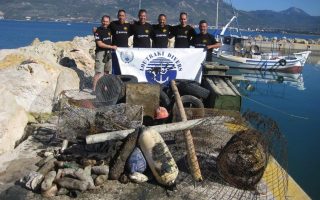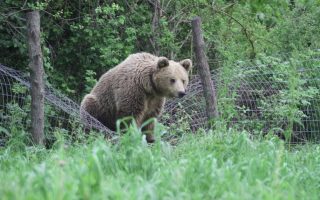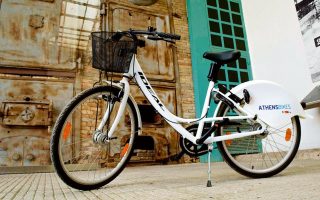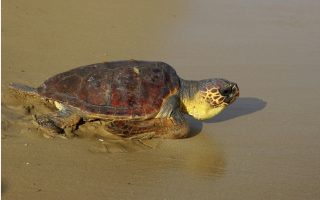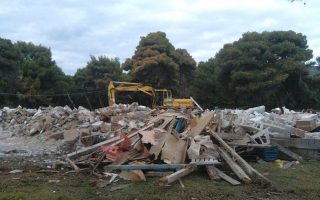WWF Greece introduces app aimed at mapping urban green areas
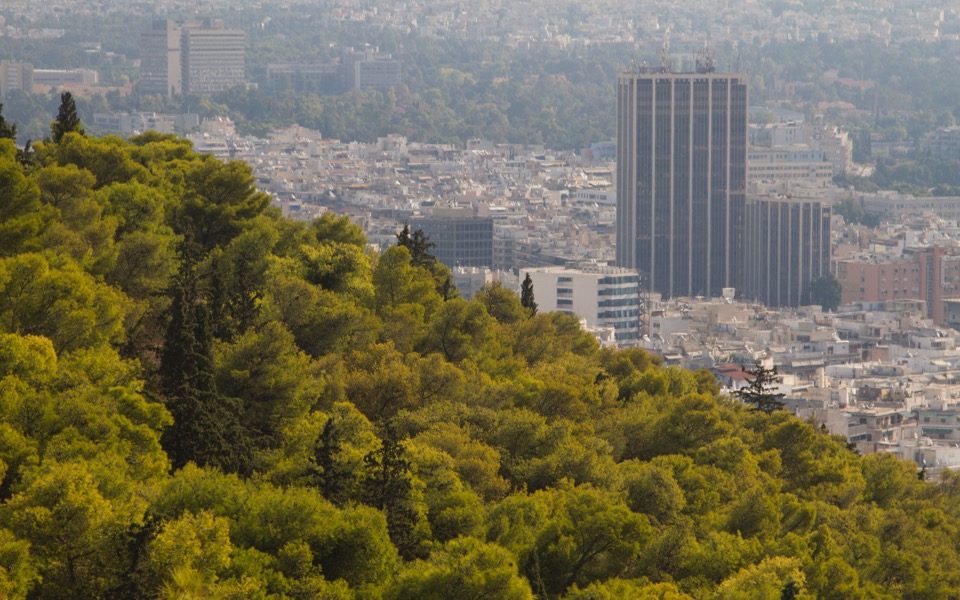
A new initiative aiming to map green areas in towns and cities has been launched by the Greek branch of the World Wildlife Fund (WWF Greece) as the country struggles to deal with the environmental impact of the lingering financial crisis.
“Despite the need for green areas in our towns and cities, there is only a very small number of them,” Achilleas Plitharas, head of the environmental organization’s Better Life campaign, told Kathimerini, adding that poor maintenance of existing green spaces is an equally significant problem.
Responding to such concerns, WWF Greece has created a free app for mobile devices as a step toward improving public urban green spaces while encouraging more active involvement on a citizen level.
According to data compiled by the Organization for Economic Cooperation and Development (OECD), Athens features one of the lowest estimates of green areas, just 0.96 square meters per person. Another study by the Aristotle University of Thessaloniki put the ratio in Greece’s northern port city at 2.14 square meters per person. Meanwhile, both cities scored well below the minimum level of 9 square meters per person recommended by the World Health Organization (WHO).
A Eurobarometer survey, published in 2013 under the title “Quality of Life in European Cities,” found that satisfaction with regard to green spaces was below the 50 percent mark in two Greek cities, Athens and Iraklio, Crete.
The app, called GreenSpaces, allows users to tag and post photos of parks and green areas and rate them in terms of how clean, tidy and well maintained they are. Users can report ratings posted by other users that they feel are under-explained or unfair. Interaction is a key element of the project.
“We are aiming to motivate people to get out of their homes, to care more about the green oases that may exist in their city or neighborhood,” Plitharas said.
“We also wanted to find a way to motivate the municipal authorities, many of which typically take an interest in green areas only during election campaigns,” he said.
“And we wanted to make all this as user-friendly as possible.”
Most users complain about rubbish, unscooped pet poop and acts of vandalism.
“Conditions have deteriorated because of the financial crisis, which has restricted the authorities’ ability to fix problems, even if they are willing to do so,” Plitharas said.
Plitharas acknowledges the role of urban activist groups in keeping some of these parks in decent shape – such as the Antonis Tritsis Environmental Awareness Park in the western Athenian suburb of Ilion, which, ironically, has been mostly abandoned by authorities.
“Nevertheless, there is very little that can be achieved without a change in mentality without putting pressure on municipal authorities and without strengthening the citizens’ role in all this,” he said.
Nikos Belavilas, assistant professor of urban planning and urban design at the National Technical University of Athens (NTUA) and head of the Urban Environment Laboratory, cautions over a popular misunderstanding.
“A key distinction needs to be made. This is not Stockholm with its wet, cool climate and rich soil. This is the Mediterranean. You need to love a Greek park for what it is. A park with pine and cypress trees, bushes and wild weeds. A park does not necessarily have wild chestnut trees and other big trees,” he said.
Belavilas says that people can keep such areas clean through voluntary initiatives, like those organized in foreign countries.
“Are we really looking after our public areas? No, we are not,” Belavilas said.
“We throw litter in the street, we pollute our land, and we abandon our small neighborhood parks to their fate. It would be far easier if locals took up initiatives to look after their own neighborhoods,” he said.
